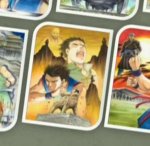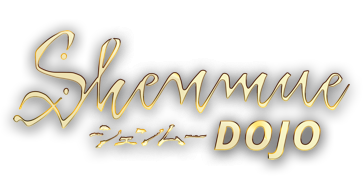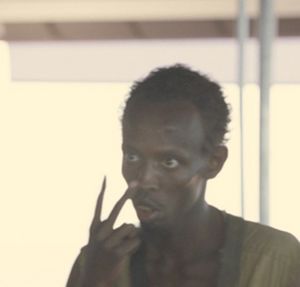The mirrors are symbolic, the treasure is, likely, symbolic (Lan Di's pearl of wisdom; it's even there in the scroll), the tree is symbolic, and they fit into motifs centered on Chinese mythologies.
Symbolism is only part of it, it's not an end in itself. The mirrors are not
just symbolic, they're keys to a treasure; that treasure isn't
just symbolic because it's indicative of the stakes of the story (Iwao took the mirrors back to Japan and risked his life for what? The CYM need to be stopped unless they get their hands on symbolism?). The Shenmue tree is the only thing that may exist purely for symbolism, and that's fine though, again, I would not expect us to not encounter another Shenmue tree in the game SHENMUE and the context in which they appear in the story will largely describe their symbolism.
Also, just because a story contains strong symbolism doesn't automatically make it good (watch Mother! for an example of that), especially for something non-abstract like Shenmue. Shenmue clearly has a plot and that plot needs to make sense first and foremost, the symbolism comes after.
You don't read The Old Man and the Sea, and say, 'Yeah, that was written really poorly because the old man didn't accomplish anything, and we didn't even find out any real details about the marlin or the sharks,' do you?
Shenmue is not this type of story. It's an adventure/mystery story. The Old Man and the Sea is also a short novel, not an epic saga spanning multiple installments. Shenmue has far more in common with Harry Potter, LOTR, GoT, Star Wars etc. than any of the literature you've mentioned. If Shenmue
were a more cerebral character piece about Ryo's mental state and moral code, then it is failing spectacularly at conveying the psychological depth and complexity needed to sustain such a character/narrative over such a long period. Ryo is a blank slate hero's journey character, not a Hemmingway protagonist.
That being said, it really sounds like you would enjoy Better Call Saul, you should check it out.
If you want to miss the forest for the trees, then be my guest. I can't stop you. It just sounds to me like you could get a lot more enjoyment out of this style of media if you learned how to interpret things for yourselves, instead of worrying about whether or not there will be a "cool payoff."
Again, Shenmue is an adventure/mystery story and mysteries are written with payoffs. It's not my only interest in the series but, as it stands right now, the Shenmue story is incomplete without resolution to the plot points I laid out, whatever form that takes.
He suggests in interviews that Ryo comes to a realization that he's no longer alone through much closer bonds with the people traveling with him (Shenhua and Ren, for now at least), which triggers a sense of hollowness in his pursuit for revenge. This is consistent with the poem used in early promotions, and printed in the OST book.
So he just lets the CYM get the treasure once he makes enough friends? Yeah, no.
This is a matter of interpretation, by the way. Alice begins in the Looking-glass House by describing it to Dinah as if it were a real place. Dodgson wrote the stories for the daughter of his college's dean (Alice Liddell), probably to represent the imagination of a child, and to inspire hers. Also, none of the plot is "explicit," and Alice 'wakes up' shaking one of Dinah's kittens that she had perceived to be The Red Queen. That's the point, and there's a whole world of surrealist fiction that spends most of its time obfuscating details.
Alice in Wonderland makes it quite clear that she's in the real world first, and then travels to Wonderland; it's true that Through the Looking Glass isn't clear about this, but it
is a semi-sequel and, again, clearly a fantasy world where our rules don't apply. Shenmue is not attempting to do this at all. Ryo
symbolically leaves the relative safety of his hometown and enters a new and unfamiliar world (
to him) but that world is still a real place at a real point in history.







